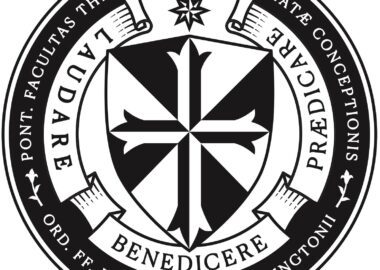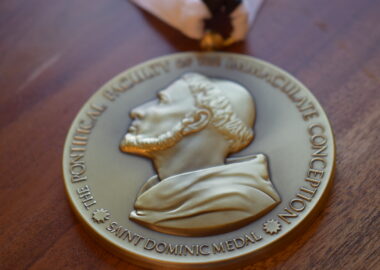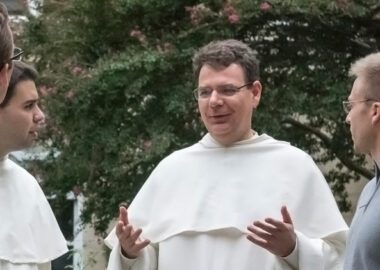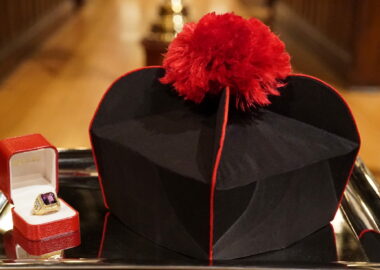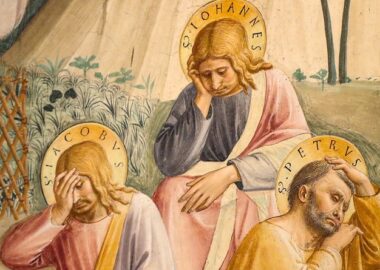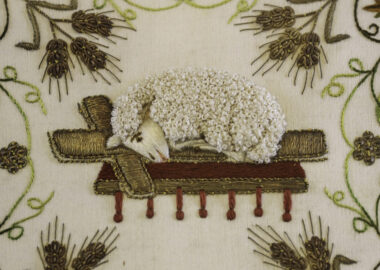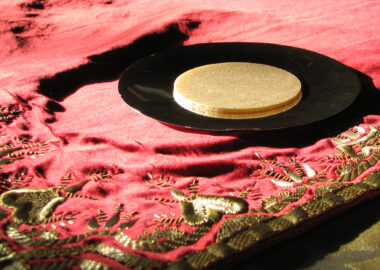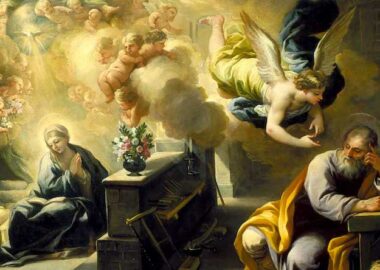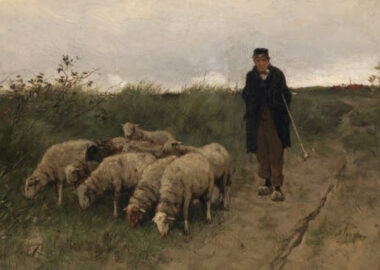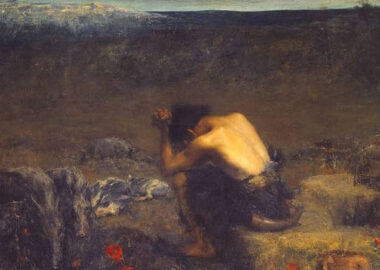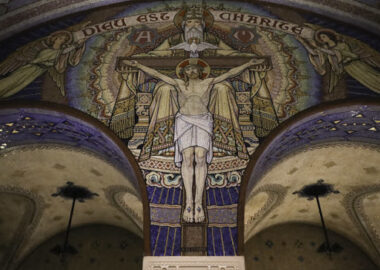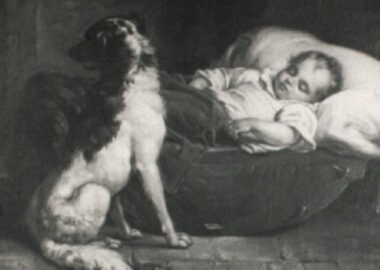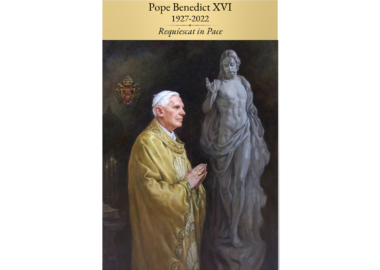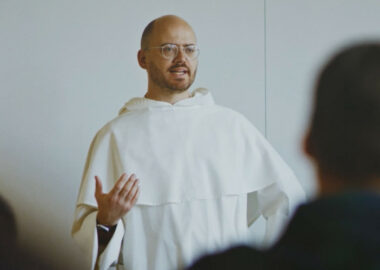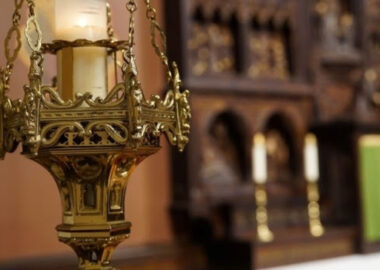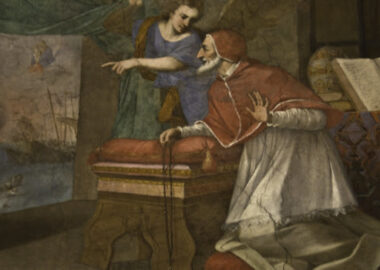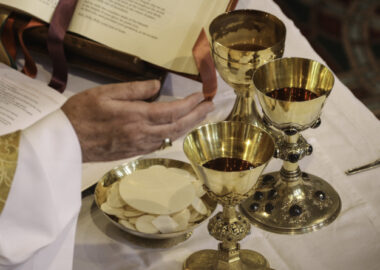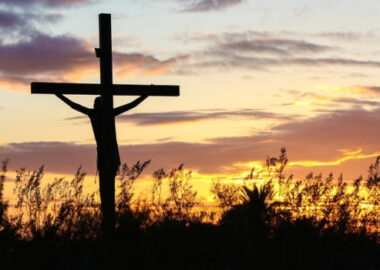
- Home
- Latest Content
- Surprised by Playfulness
Surprised by Playfulness
The “laughter-stirring miracle”.

by
Br. Basil Burroughs, O.P.
on
August 09, 2022
in
Dominicana
Saint Dominic was an austere man. He traveled barefoot, slept on the hard ground, and often fasted on bread and water. This self-denial gave St. Dominic credibility among the townspeople of his time, who were disillusioned with the decadence of the clergy and attracted to the severity of the Waldensian and Cathar heretics. Given his austerity, one might assume that St. Dominic was sour-faced and unpleasant to be around. But this could not be further from the truth!
A contemporary biographer, Blessed Cecilia Cesarini, recounts that St. Dominic “was always joyous and cheerful, except when moved to compassion at anyone’s sorrows” (Lives of the Brethren, 3.14). Another biographer, Blessed Jordan of Saxony, recalls that St. Dominic’s “cheerfulness is what enabled him so easily to win everyone’s affection,” and that “none was more affable, none more pleasant to his brethren or associates” (Libellus, 104).
One evening, when St. Dominic was preaching to a group of Dominican nuns in Rome, Satan himself interrupted the sermon. Having taken on the bodily appearance of a sparrow, the devil fluttered around the church and hopped on the nuns’ heads to distract them. Sensing that his audience’s attention was wandering, how did St. Dominic react? Not with anger or alarm, but with playfulness!
After asking a nun to catch the devil-sparrow, St. Dominic received it from her, identified it as the devil, and (no doubt with a mischievous grin) began to dramatically pluck its feathers, evoking much laughter from the friars and nuns present. Then, to the delight of his audience, St. Dominic took the devil-bird and chucked it out the window, calling theatrically after it: “Fly now if you can, enemy of mankind!” The chuckling nuns then listened once more to the sermon, their attention restored by what Bl. Cecilia called the “laughter-stirring miracle” (Lives of the Brethren, 3.10).
As the devil-sparrow incident illustrates, St. Dominic was a playful man. This playfulness made St. Dominic an effective preacher. He instinctively mastered Cicero’s maxim that “when the audience is weary, it will be useful for the speaker to try something novel or amusing” (quoted in ST II-II q. 168, a. 2, ad 1).
Likewise, St. Dominic’s playfulness brought useful refreshment to his fellow religious. Play and mirth relieve the mental weariness that accompanies the mind’s focus on higher things, refreshing the interior senses so they can be used again in prayer or study (ST II-II q. 168, a. 2). This refreshment is especially necessary for people who hope to persevere in sustained contemplative work—people like friars and nuns.
How weary must the friars and nuns have been on the evening of the “laughter-stirring miracle”! Tired from their studies and prayers, disturbed by seeing the devil-sparrow, perhaps grumbling that the Franciscans probably had better pest control, how many discouraging thoughts must have crossed their mind—until St. Dominic moved them to laughter!
Compare this liberating refreshment with the stifling effect of a boorish man on others. The boorish man, who offers no playful speech to others and actively hinders others from being moderately playful themselves, is burdensome to everyone he spends time with (ST II-II q. 168, a. 4).
Like the Waldensians and Cathars of St. Dominic’s time, boors might offer a “greater outward show of piety” (Lives of the Brethren, 5.12), but they make for impatient teachers and community members, unable to bear or relieve the weariness of their hearers and brethren. In contrast, as St. Dominic shows us, true austerity is compatible with playfulness (ST II-II q. 168, a. 4, ad 3). One goes hand in hand with the other.
Amid widespread clerical scandal in our time, we certainly ought to ask St. Dominic to teach us austerity—to help us pluck our hearts clean of sloth, greed, gluttony, and lust. Perhaps less obviously, in an age of distracting tweets and bitter moralism, we also ought to ask St. Dominic to teach us playfulness, so that we might seize the attention of scattered minds and refresh our weary brethren.
✠
Photo by Fr. Lawrence Lew, O.P. (used with permission)
Originally posted in the Dominicana Journal
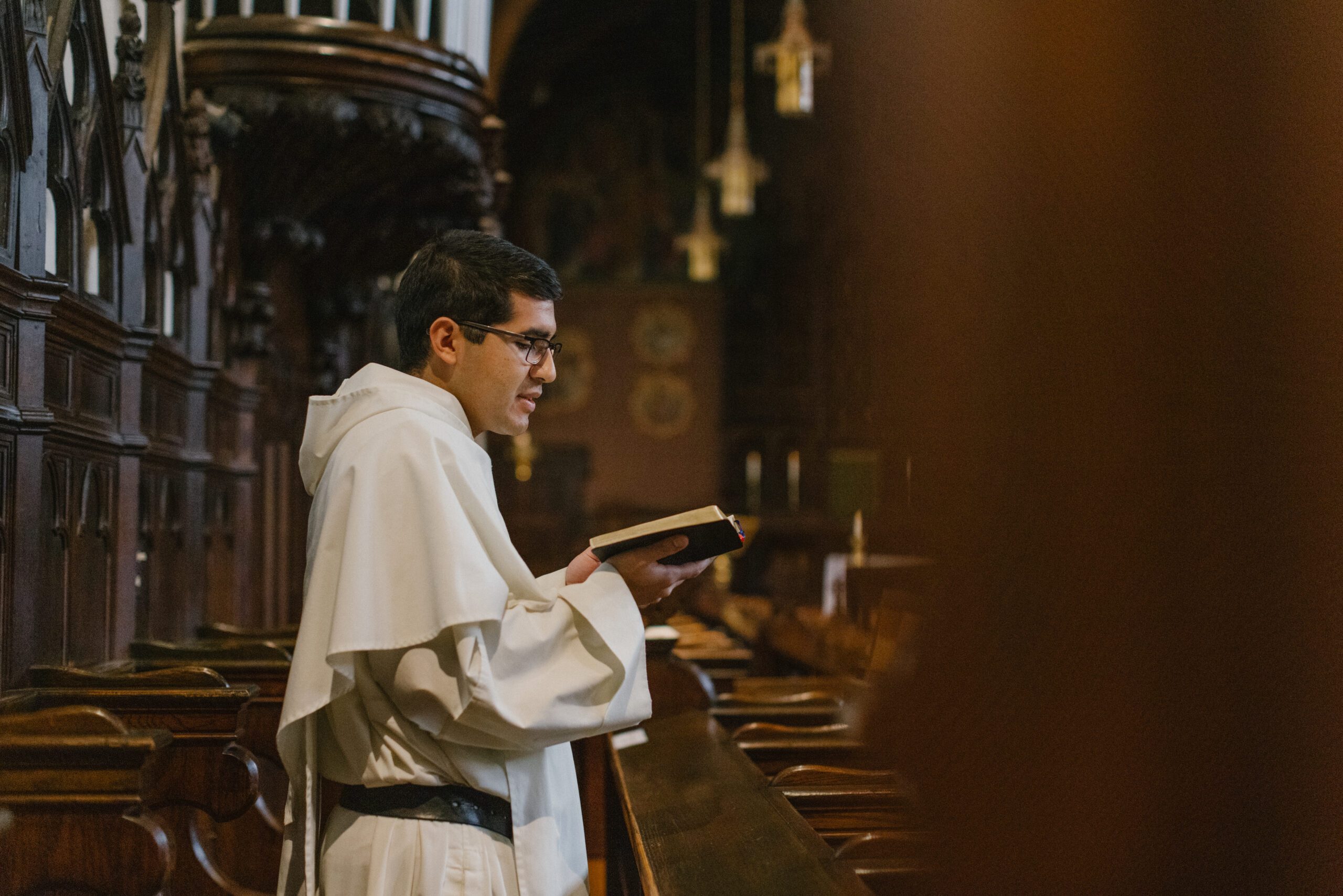
The Dominican House of Studies
Forming Preachers of Truth in Charity.
Catholic theology in the Thomistic tradition for Dominican students and all who are interested in serving the Church, evangelizing the world, and growing in virtue, wisdom, and holiness.
Give
